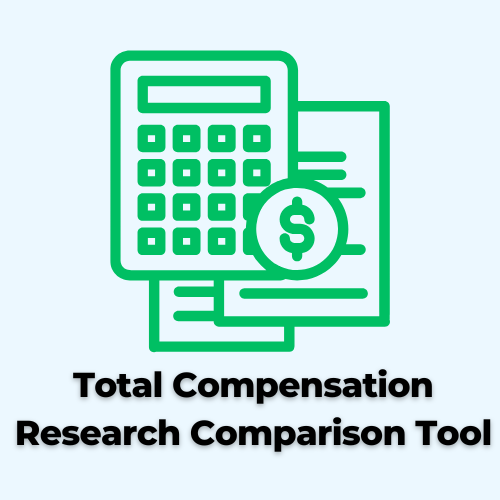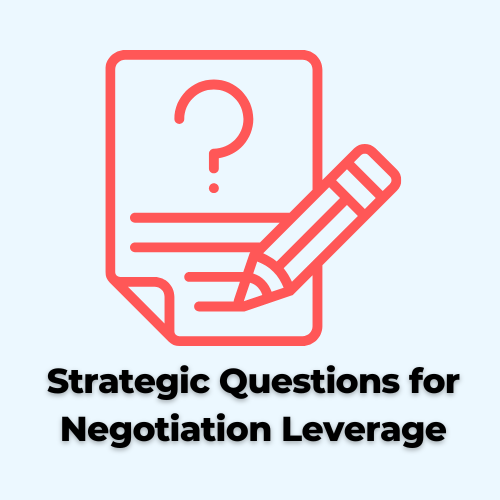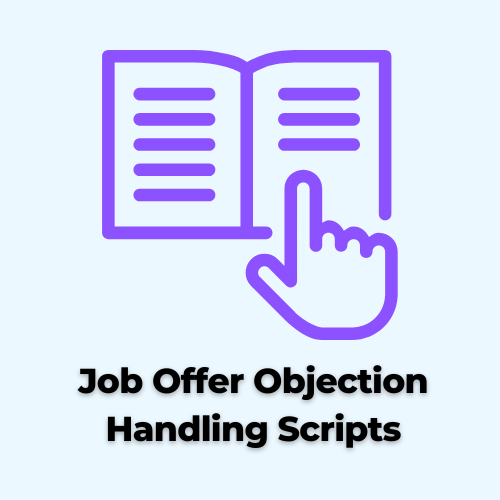Why, When, and How You Should Negotiate Your Job Offer
Many job seekers know they should negotiate their job offer. But not many do.
Most people hold back for three reasons: 1) they don’t know if salary negotiation is possible at the new company and for their specific role, 2) they don’t want to seem “difficult” or “ungrateful” by asking for more compensation, and 3) they don’t know how to successfully negotiate so they don’t try.
But if job seekers don’t negotiate their job offers, they often miss out on additional compensation. The Salary Negotiator team wants to help you avoid that. In this post, we talk about why you should always negotiate your job offer, the best time to start the negotiation process, and five proven steps that have helped our clients successfully secure more compensation. That way you know how to negotiate a job offer.
Want to Negotiate Your Offer? Get offer-specific guidance from a Salary Negotiation Coach. We help career professionals negotiate competitive job offers.
Or leverage our Salary Negotiation Courses and Templates.
 Job Offer Negotiation Course
Job Offer Negotiation Course
- Get our job offer negotiation strategies, templates, scripts, and guidance.
- Access our step-by-step lessons, compensation research guides, and tools.
- Access Now
 Raise Negotiation Course
Raise Negotiation Course
- Get our raise negotiation strategies, templates, scripts, and guidance.
- Access our step-by-step lessons, compensation research guides, and tools.
- Access Now
Why you should negotiate your job offer
Negotiating your salary may sound like a stressful and intimidating process, which is why many candidates don’t do it. But most employers expect job candidates to negotiate, so when you do it—and do it well—your chances of securing better compensation are high.
In fact, The Salary Negotiator has seen a 94% success rate when helping individuals negotiate their salaries, meaning that 94% of the time companies offer more compensation. While the thought of negotiating may seem difficult, know that it is normal and expected, and it can pay dividends on your future career earnings.
When to start the salary negotiation process
It’s best to avoid starting the negotiation until you have an offer in hand. You don’t want to jeopardize your chances of receiving the job offer by negotiating too early, and you’ll have more leverage once the hiring team has selected you as the ideal candidate for the role. We highlight how to avoid starting the negotiation and sharing salary expectations here.

- Salary Expectation Responses – Scripts to overcome recruiter salary expectation discussions and pre offer calls.
- Avoid Lowballing Yourself – These call scripts and email templates will help you get a competitive offer.
- Get Here
How to negotiate your job offer (5 proven steps)
We’ve worked with hundreds of clients to successfully negotiate offers for some of the largest companies in the world. Based on our experience, we’ve identified five key steps that will help you navigate your salary negotiation with ease, confidence, and professionalism.
1) Understand the components that make up your offer—both the total compensation & benefits
You can’t negotiate a better deal if you don’t know exactly what’s in your initial offer. These components typically include your base salary, performance bonus, equity, sign-on bonus, relocation package, and any benefits and perks. Learning more about these details is the first step before attempting to negotiate any job offer.
Base Salary: The pay employees are guaranteed in exchange for the work they do.
Performance Bonus: A fixed amount or a percentage of your base salary that is paid out at the end of a quarter or year. Bonuses can fluctuate depending on personal and/or company performance.
Equity: Ownership in the company. This will be granted as either stock or options that will vest over a certain duration (i.e., 4-years). Equity is most common in offers from companies in the tech industry (i.e., Google, Apple, Amazon, Microsoft, Meta - formerly Facebook, Startups, etc.).
Sign-on Bonus: A one-time bonus for joining the company. They are often provided as an incentive to work at the company or to cover any lost bonuses or unvested equity that employees may give up at their current company.
Relocation Package: A one-time package to help cover the cost of an employee’s move. Can be one lump sum payment with you planning the move, or they cover all expenses by reimbursement.
Benefits/Perks: This may include health insurance, vacation/sick days, retirement benefits (401K, etc.), tuition reimbursement, phone stipends, commuter benefits, car allowance, and free food.
If you need help organizing these compensation components, you can use our total compensation calculator or comp tool below.

- Understand Total Compensation – Use our tool to break down and calculate the compensation in your job offer.
- Research & Compare Offers – Organize your compensation research and determine the right counter amount.
- Get Here
2) Gather valuable information from the recruiter by asking the right questions
This is your chance to ask any (and we mean any!) questions about the role and ensure you understand everything in the offer before you accept. Asking good questions shows you’re doing your due diligence on the offer, and it is foundational for crafting an appropriate, effective, and successful counter offer. You can use our Strategic Questions to Build Negotiation Leverage if you need help finding the right questions to ask.

- Build Negotiation Leverage – Ask the right questions to strengthen your negotiation before sending a counter.
- Email & Phone Scripts – Get our list of questions to ask and what to say if the recruiter wants to chat through them.
- Get Here
Don’t rush this step. It’s normal to ask for more time to process the offer, but we suggest getting back to the recruiting team with your questions within 48 hours at most.
3) Conduct comprehensive research to determine the pay range for the role and what your specific compensation should look like
Using industry research to compile compensation data will help you understand the role’s pay range, how strong your offer is, and how much you should ask for. Use multiple online resources to collect this data (Payscale, Glassdoor, Salary.com, etc.), but be aware that these resources provide compensation reported by current or past employees so the pay may differ from what they offer new employees. You can download our Total Compensation Research Comparison Tool to help you navigate your salary research.

- Understand Total Compensation – Use our tool to break down and calculate the compensation in your job offer.
- Research & Compare Offers – Organize your compensation research and determine the right counter amount.
- Get Here
You’ll usually want to push for the top end of the range—regardless of your experience or background or anything else a recruiter might tell you to accept lower compensation.
4) Ask for the compensation you deserve IN A COUNTEROFFER
Kindly and confidently present your ask to the recruiter by referencing data for why the pay should be higher and how the benefits differ from your current company and other companies, which in turn warrant a higher compensation. We suggest doing this via email so you can draft exactly what you want to say in a counteroffer and avoid getting off-topic by live questions from the recruiter. Be professional and courteous but firm.
If you need the right verbiage and want to present the right tone then you can download our counteroffer examples.

- Proven Counteroffer Templates – Built from hundreds of successful job offer negotiations.
- Negotiate with Confidence – Remove the guesswork with our professionally crafted counteroffers.
- Get Here
5) HANDLE OBJECTIONS FROM THE RECRUITER AND ACCEPT KNOWING YOU ACHIEVED THE BEST COMPENSATION
Sometimes it only takes one counteroffer and the hiring team will respond with a better offer. Usually though, the hiring team will come back to you with reasons why the hiring team cannot improve the offer. If that happens, it’s important to see these as an objection you need to overcome instead of a true NO.
To handle an objection, respond by acknowledging their reasoning, but reiterating your ask and your desire for them to share your thoughts with the compensation team (even if they say that their team will just say no). Take this approach regardless of the hiring team's reasoning. You may have to handle a few objections but once they agree to take it back to their team, they should come back with an improved offer. Take care not to be confrontational or demanding just like our recruiter objection scripts suggest.

- Overcome Recruiter Pushback – Proven scripts to handle pushback and keep your salary negotiation on track.
- Communicate Effectively – Use expert responses to get recruiters to advocate for you with the compensation team.
- Get Here
Once you receive an updated offer that fits your needs and matches the comp bands you researched, you should be ready to accept your negotiated offer. Congratulations on a successful job search and salary negotiation!

- Accept or Decline – Expert crafted job offer acceptance email and rejection email templates to share your decision.
- Professional & Genuine Tone – These help you communicate in a professional manner regardless of what you decide.
- Get Here
What to do if they refuse your counter offer and decline to move the process forward
Remember that it is normal to encounter pushback from a recruiter before receiving an improved job offer. You should kindly and professionally advocate for yourself, with the goal of them taking your concerns back to the hiring team (the “decision makers”) to see if they can find flexibility on the offer.
If they do make movement, but it’s lower than your ask or expectations, it’s acceptable to negotiate a second time with our counteroffer drafts if you need to send a second counter—just make sure to remain respectful and appreciative of their efforts thus far.

- Proven Counteroffer Templates – Built from hundreds of successful job offer negotiations.
- Negotiate with Confidence – Remove the guesswork with our professionally crafted counteroffers.
- Get Here
The bottom line
Following these steps is critical to navigating the job offer negotiation with ease and professionalism—and of course, increasing your chance of receiving a higher offer. Regardless of the role and industry, we’ve proven—through hundreds of successful negotiations for our clients—that this is the best and most trusted approach for negotiating all new job offers.
Need Professional Salary Negotiation Coaching?
If you want to guarantee success in your salary negotiation, get Salary Negotiation Coaching from us. Our experience helping career professionals negotiate job offers will ensure you negotiate competitive compensation.
We also have our How to Negotiate a Job Offer and How to Negotiate a Raise courses, and Salary Negotiation Templates for those who want to learn at their own pace and gain the confidence and tools to negotiate their compensation. With downloadable email templates and job offer negotiation resources you will be prepared for all aspects of the salary negotiation.
 Job Offer Negotiation Course
Job Offer Negotiation Course
- Get our job offer negotiation strategies, templates, scripts, and guidance.
- Access our step-by-step lessons, compensation research guides, and tools.
- Access Now
 Raise Negotiation Course
Raise Negotiation Course
- Get our raise negotiation strategies, templates, scripts, and guidance.
- Access our step-by-step lessons, compensation research guides, and tools.
- Access Now


